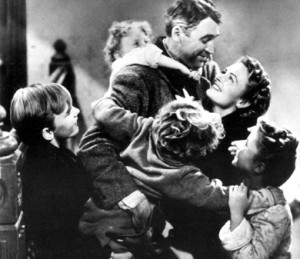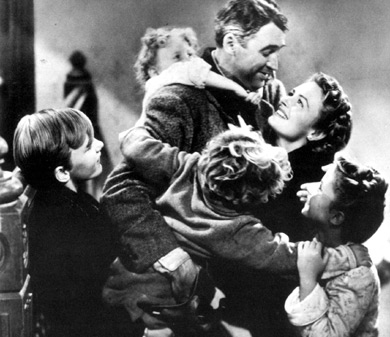 The reason so many Americans remain pro-choice is not because they’ve been persuaded on the merits, but because abortion apologists have scared them into compliance with deceptive horror stories about women and children who will allegedly suffer poverty, neglect, and death without the escape hatch of ditching unwanted offspring. Despite the moral intuitions that compel them to add “personally opposed” or “morally wrong” qualifiers to their answers, too many simply can’t stomach the possibility of these predictions coming true.
The reason so many Americans remain pro-choice is not because they’ve been persuaded on the merits, but because abortion apologists have scared them into compliance with deceptive horror stories about women and children who will allegedly suffer poverty, neglect, and death without the escape hatch of ditching unwanted offspring. Despite the moral intuitions that compel them to add “personally opposed” or “morally wrong” qualifiers to their answers, too many simply can’t stomach the possibility of these predictions coming true.
Such heartstring-tugging is nothing new, but a recent Guardian editorial by Lynn Beisner gives the emotional appeal an unsettling new twist: “I wish my mother had aborted me […] because I love her and want what is best for her.” In admittedly harrowing detail, she describes how her birth deprived her mother of the opportunity to get an education and grow beyond the traumatic childhood that all but ensured that she become an abusive parent to Lynn:
At college in the late 1960s, it seems likely she would have found feminism or psychology or something that would have helped her overcome her childhood trauma and pick better partners. She would have been better prepared when she had children. If nothing else, getting an abortion would have saved her from plunging into poverty. She likely would have stayed in the same socioeconomic strata as her parents and grandparents who were professors.
If killing an unborn baby is justified by the various time, economic, and emotional burdens her existence imposes on the mother, couldn’t we just as easily find any number of scenarios where born humans should be killable because they impose similar hardships? Maybe you just can’t take care of Grandpa anymore. Maybe your spouse is a nightmare and divorce isn’t an option. Maybe your infant son is impacting your life in the exact same way a fetus does. (Oh, wait – people do believe that one.) Beisner’s argument still requires her to diminish the status of the unborn:
If you believe what reproductive scientists tell us, that I was nothing more than a conglomeration of cells, then there was nothing lost. I could have experienced no consciousness or pain. But even if you discount science and believe I had consciousness and could experience pain at six gestational weeks, I would chose the brief pain or fear of an abortion over the decades of suffering I endured.
But that’s not what reproductive scientists tell us. They tell us Beisner was a “conglomeration of cells” in the same essential sense that she’s a “conglomeration of cells” today: a live, individual human being. Any scientist who tries to infer from that how much respect she deserved is practicing not science, but philosophy or metaphysics – a profoundly different enterprise. Simply asserting that consciousness and perception were Beisner’s only qualities worth protecting doesn’t end this conversation; it begins another one.
Further, by justifying her position on the grounds that she would have willingly foregone her own future for her mother’s sake, Beisner has unwittingly left herself vulnerable to one of her own side’s favorite questions: just because you would have made a particular choice, what gives you the right to decide it for everyone else, many of whom surely would have decided they’d prefer living?
The world would not be a darker or poorer place without me. Actually, in terms of contributions to the world, I am a net loss. Everything that I have done – including parenting, teaching, researching, and being a loving partner – could have been done as well, if not better by other people. Any positive contributions that I have made are completely offset by what it has cost society to help me overcome the disadvantages and injuries of my childhood to become a functional and contributing member of society.
Despite how matter-of-factly Beisner says it, this is a shocking statement with extraordinary implications. Like a grim retelling of the Jimmy Stewart classic It’s a Wonderful Life where Clarence never intervenes, Beisner arrogantly presumes we can know the limits of any one person’s impact on the surrounding world. Worse, she reduces human worth – of all humans, not just those in the womb – to a utilitarian calculation of how useful the individual is to the collective. I can’t say it any better than pro-choice Brendan O’Neill in the Telegraph, who recognizes that her logic takes us farther than he’s willing to go (hat tip to Rusty Weiss):
Now we have the likes of pro-choice Ms Beisner suggesting that abortion is a good thing because it can prevent the creation of young people who are deprived and depressed – that is, abortion can serve the social end of reducing the number of down-in-the-mouth teenagers and fulfilling their infantile fantasies of non-existence. Or abortion is promoted as a solution to environmental problems. Marie Stopes International, for example, is looking into ways that “family planning could be used to combat climate change”. One American feminist has argued that abortion is a good eco-choice, since it can help reduce human numbers and shrink mankind’s dirty carbon footprint. Creepily, she says: “A tiny embryo must sometimes be scarified for the greater good of the human species…”
Campaigning for abortion on the basis that it can solve the alleged population crisis or reduce the number of depressed teenagers or make it easier for people like Ms Beisner to live with themselves (or not, as the case may be) takes us perilously close to eugenics territory. It takes us towards a situation where abortion is treated as a tool of political and social goals.
Pro-lifers frequently warn that the logic of abortion poses a grave threat to mankind’s very conception of a right to life. With essays like this, pro-choicers seem insistent on proving us right.







